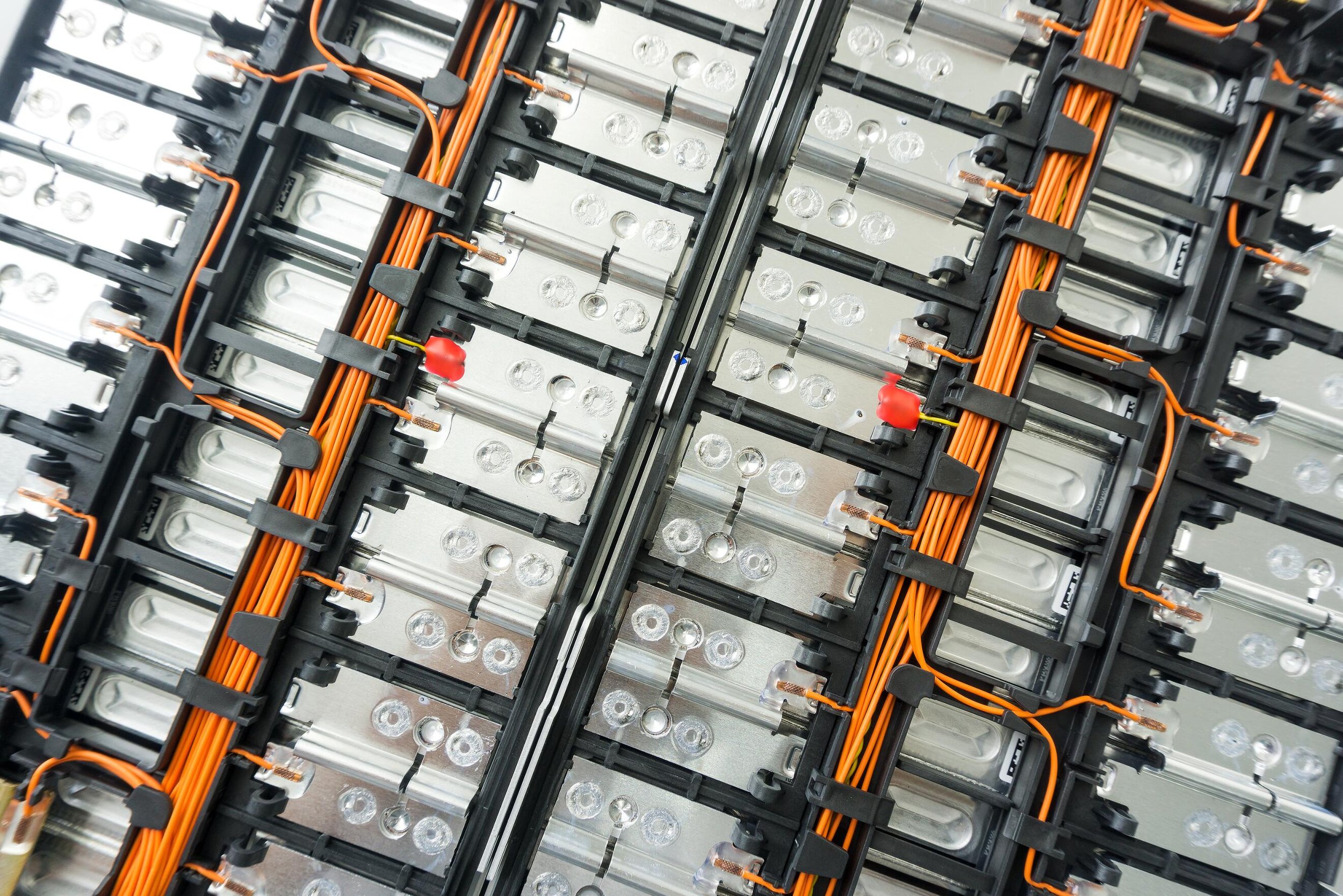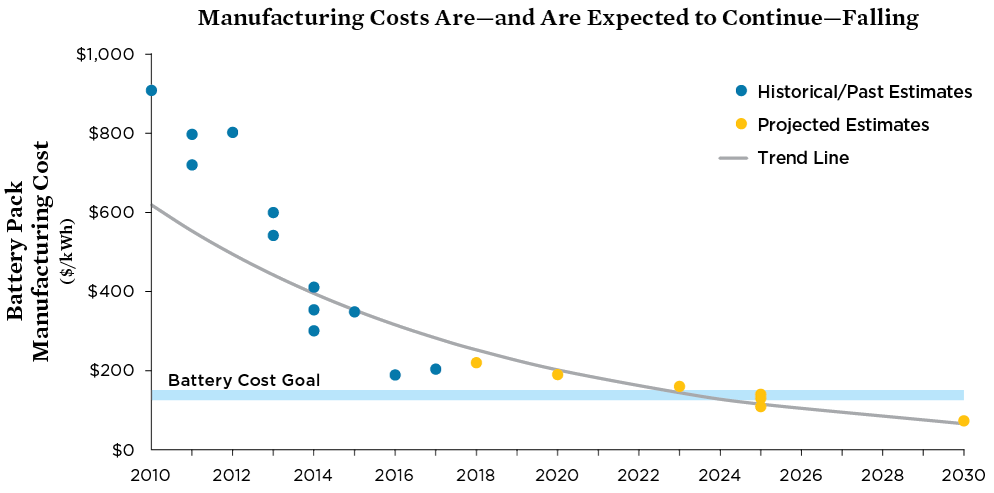
No, You Won’t Need To Replace Your EV Battery
IrishEVs was created to provide Irish drivers with clearer, unbiased information about electric vehicles in the face of the Climate Crisis, so that our readers can make more informed decisions about living more sustainably. And saving money too.
A key part of this is tackling the common misconceptions and myths about EVs. While we have seen many of these, such as range anxiety, fall by the wayside, there are some that still persist.
A prominent myth which still seems to be putting people off buying an electric car is the fear that they will need to buy a replacement battery for it, which they believe will be an exorbitant cost.
Today we will prove why this is just a harmful myth, and that it is not a valid reason not to switch to an EV.
ICE vs EV
Firstly it is important to note that internal combustion engine (ICE) vehicles – those run on petrol or diesel, including hybrids – have thousands of moving parts, which makes them incredibly prone to wear and tear. This means that they become less efficient over time, and require more oil to be drilled from the Earth to keep them in working order and economical for drivers to use.
Electric cars, on the other hand, only have a handful of moving parts. This means they require a lot less maintenance, lowering average running costs by around 78% per year compared to an ICE, but crucially it also means that they are less prone to faults.
As such, the average life expectancy of an internal combustion engine is around 13 years – based on the average mileage of the typical Irish driver (17,000km per annum) – while an electric car’s motor and battery should exceed 20 years of operation without needing a change.
To put that in terms of mileage, in 2021 the US Department of Energy conducted an extensive study of internal combustion engines and found that they typically last up to 133,000 miles (214,000km).
While most studies have placed the average EV battery at exceeding around 200,000 miles (321,868km).
The price of EV batteries has fallen by 89% since 2010 and is likely to fall even further in the next few years. Yet, range and reliability has only increased. Credit: Union of Concerned Scientists
This isn’t just theoretical numbers, the popularity of EVs as taxis – owing to their lower running and maintenance costs – means that we have good data from EVs which are each covering over 300,000 miles (482,800km) each year.
Furthermore, a report by Cartell.ie in 2020 found that the average car in Ireland changes ownership every 3.39 years. So not only will an electric vehicle last longer than a combustion engine one, but it will significantly exceed the length of time that you are likely to be driving it before selling it on to someone else.
As such, it is incredibly unlikely that you – or anyone else – will need to pay to replace the battery of your EV. This is a well-debunked myth.
How Long Do EV Batteries Last?
So, now that we understand that EV batteries are likely to last much longer than internal combustion engines, what kind of impact on range can we expect over an EV’s lifetime?
According to a 2019 study by Geotab, the average EV battery lost around 2.3% capacity per year. This means that an EV purchased with 300km range today will only have lost around 34km in range in five years’ time.
While EV batteries will lose capacity over time - in the same way that ICEs become less efficient - but this is likely much less than you think or have been told. And there is compelling evidence that this loss lessens over time. Credit: GeoTab
However, battery degradation has also been seen to level out over time. Back in 2016, Plug In America found that the typical Tesla Model S only lost around 5% of its original capacity over the first 50,000 miles, with the rate of depletion actually slowing down from there.
Tesla’s own impact report in 2020 declared that their Model S and Model X batteries will lose less than 20% of their original charge after being driven for 200,000 miles.
This data is supported by a 2020 study by Consumer Reports, which estimates that an EV battery pack’s lifespan should exceed 200,000 miles without ever needing to be replaced – meaning the battery will more than likely outlive the life expectancy of the car.
The same report also points out that the typical person switching from an internal combustion engine vehicle to an EV would save more than $4,700 (€4,100) in fuel savings during the first seven years of ownership.
Furthermore, it is a common misconception that an EV battery will just conk out and die one day, but this could not be further from the truth. The degradation is incredibly slow and gradual – and not prone to sudden failures as ICEs are.
In fact, the majority of manufacturers give between 5-10 years warranty of their batteries, or up to around 100,000kms. Some, like Hyundai even offer an 8 year or 200,000km warranty of their Kona Electric’s battery – that is how confident manufacturers are that you won’t need to replace a battery.
Even if, in the very rarest of occasions, an EV battery would need to be replaced –and this is unlikely within the life expectancy of most cars on Irish roads today – the cost of batteries has fallen by 89% since 2010. Meaning that a replacement would cost less than buying a used car.
Even then, depending on the type of car you own, you may only need to replace a section of the battery, rather than the whole thing. With manufacturers under increasing pressure to improve the sustainability of their vehicles, it is likely that batteries will be even more modular in the near future.
Second Life
When electric vehicle batteries are chosen to be retired – and it is a choice rather than a necessity – they can still live very productive lives, and help society be more sustainable in the face of the Climate Crisis.
Retired EV batteries typically have around 80% capacity when they are retired, and are ideal for use in homes and businesses to store renewable energy.
For example, storing energy from solar panels on the roof to use at night when they are less able to generate power. This allows you to be smarter in your energy uses, and lower your energy costs by using less power from the grid.
EV batteries are modular by nature in most cases - so a fault in the battery may only require one module to be changes, rather than the whole thing. Credit: Tesla
Furthermore, this is also important for lowering our dependence on fossil fuels as a society.
As this is less power-intense compared to rapid charging an EV and driving long distanced, batteries can be used to store renewable energy for decades or more. We can already see them in action in places like the Johan Cruyff Arena in Amsterdam, which uses 63 second-hand EV battery packs (alongside 85 new ones) to store energy from 4,200 solar panels to use for major events.
Retired batteries from Nissan Leaf cars have been used to store renewable energy at the Johan Cruyff Arena. However, the same principle can be applied in homes and small businesses too. Credit: Business Green
Extending Battery Life
As with all things, it is entirely possible to extend the life of your EV’s battery through some very simple steps.
A key consideration is the speed at which you charge the battery. The chemical composition of EV batteries means that they experience more wear when they are charged quickly, so electing to charge them at a slower rate overnight will make them last longer – this is the typical method of charging for the vast majority of owners anyway. It is also the least carbon-intense way to charge, and the cheapest too. So win-win.
Furthermore, it is recommended that you don’t charge the battery every night, as every time you charge it places stress on the battery
And staying between 20-80% charge will help too, as batteries are designed to discharge energy – so fitting fully charged for extended periods can reduce the battery’s capacity as a whole. This is the same as your smartphone – limiting to 80% charge will make it last much longer.
However, these aren’t essential actions – and will only make an impact over the long-term.
Forgetting to limit your charge to 80%, or fast charging on occasions isn’t going to have any major impact, in just the same way that you may have driven for a while in an ICE needing an oil change and it hasn’t failed on you.
Don’t Fall For Myths
So there we have it, electric car batteries are likely to far exceed the life expectancy of whole internal combustion engine vehicles, they won’t suddenly break like combustion engines, and they can still be useful in our homes to store renewable energy once retired.
We hope this has been a useful guide to help you understand that the fear that you will have to buy an EV battery is just a myth – and not a reason not to switch to an EV, and lower your carbon footprint.
What To Read Next
Why EV Battery Recycling Is Set To Take Off
Find out why nervousness about the EV battery life cycle is overlooking other opportunities, how new efficiencies are being found, and which emerging technologies may influence its future.
How Has Battery Technology Advanced?
Find out how battery technology has advanced - from the launch of the first lithium-ion battery in 1991 to the latest innovations in the field today. And how EV batteries might evolve in the near future







